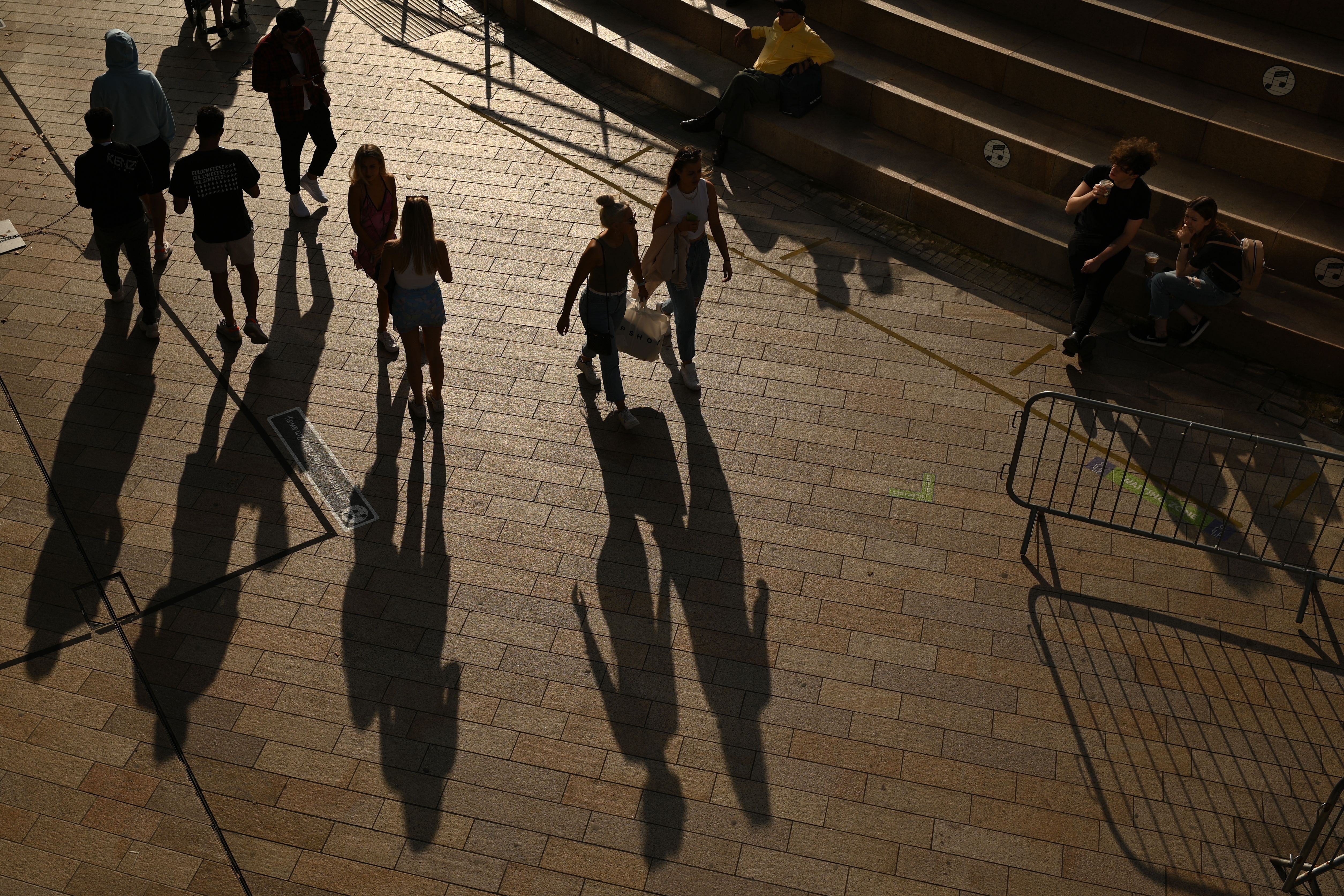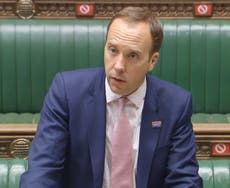‘They’ve cut us off at the knees’: New lockdown rules spark confusion and anger in northern England
Businesses fear evaporation of customer base and meagre, if any, financial support

Your support helps us to tell the story
From reproductive rights to climate change to Big Tech, The Independent is on the ground when the story is developing. Whether it's investigating the financials of Elon Musk's pro-Trump PAC or producing our latest documentary, 'The A Word', which shines a light on the American women fighting for reproductive rights, we know how important it is to parse out the facts from the messaging.
At such a critical moment in US history, we need reporters on the ground. Your donation allows us to keep sending journalists to speak to both sides of the story.
The Independent is trusted by Americans across the entire political spectrum. And unlike many other quality news outlets, we choose not to lock Americans out of our reporting and analysis with paywalls. We believe quality journalism should be available to everyone, paid for by those who can afford it.
Your support makes all the difference.The imposition of new coronavirus restrictions affecting 2 million people in the north of England has sparked confusion, concern and an angry rejection by one city’s mayor.
The visible tone in the immediate reaction online was one of frustration, with the new measures and dire warnings given by politicians coming just days after previous local restrictions were imposed in some of the affected areas.
The announcement by health secretary Matt Hancock brings measures in the Liverpool city region, Warrington, Hartlepool and Middlesbrough into line with those introduced last week in northeast England.
This means a bigger headache for hospitality venues already on the brink, who will now not be allowed to permit groups comprising more than one household to sit inside their premises.
People will only be allowed to mix with other households outside their social bubbles in streets, gardens and outside hospitality venues, leaving some once again with the types of difficult choices made during the March lockdown.
Non-essential travel on public transport - which excludes journeys for work and education - has not been banned in law, but is strongly advised against.
Amid questions over the apparent contradictions inherent in the rules now adopted across much of the country, it is this warning against non-essential use of public transport in particular which spells further uncertainty and confusion for many business owners and venues, who have been left wondering whether many of their customers will manage or dare to venture out to use their services.
“I think the government doesn’t want to say to any industry, ‘we are closing you down’,” said Scott Tynan, who owns L1 Electric Tattoo Co, based in Liverpool’s city centre.
"Like the 10pm thing with pubs, they don’t want to close them completely but they know placing those restrictions on the premises is going to massively affect the trade of that business.
“So it’s half measures all the time. They can always come back and say ‘you’re still allowed to work’ - but you’ve just told all my customers that they’re not allowed to leave the house unless it’s essential. It’s just not right …. It’s like it’s just the old ‘give you enough rope to hang yourself with’ [trick].”
“I think the government need to be more definitive in what they say - even the retail industry, they say everyone can go to work, but going shopping for clothes - is that classed as an essential journey?” he said, adding: “I just want someone to answer me - can my customers come and get a tattoo?”
The 36-year-old was forced to close his business for five months after lockdown, losing three artists in the process. He was given a one-off government grant of £10,000 at the start of lockdown, but trade has struggled to pick up since reopening and this “hasn’t even come close” to what he’s lost. He now faces the possibility of losing the studio he’s owned for 10 years.
“I just feel a little bit like I’ve been screwed over today,” the father-of-one told The Independent.
"I would have appreciated it more if they’d turned round and said ‘sorry but close contact industries will have to close for three weeks’ … because they’ve cut us off at the knees without closing us.
“They’re getting the same results without being the big bad government that’s stopping tattooists, barbers, hairdressers from working. They’re just placing obstacles in the way of those businesses carrying on as normal … it seems like they’re willing to put people at risk but they don’t want it to be their fault when there is this second spike.”
Mr Tynan added: “If you need to lockdown, lock us down. If there’s a way that we can carry on living a relatively normal existence while fighting this virus then do that, but it’s like no one knows and there’s no light at the end at the tunnel at the minute … every day is a guessing game.
“I just feel a little bit aggrieved at the fact that there’s no answers, no one’s forthcoming to give me any sort of direction on it, I’m just meant to carry on regardless and hope things get better."
In addition to wondering about the extent to which a ban on socialising would devastate footfall, hospitality venues were also perturbed by the “absolute confusion” over the new rules.
“The general public don’t understand it,” Nick Buckle, the Blind Tiger Inn’s area manager told Captial Liverpool radio station. “It’s not being communicated to us effectively.
“So if we don’t know as operators how on earth are the general public supposed to know what’s supposed to be done, and that’s our biggest challenge.”
He added that “another grey area” was the question of how hospitality venues were supposed to police the new rules, and whether if customers are discovered to have lied, could staff be prosecuted.
Liverpool’s mayor Joe Anderson, who is said to have favoured a short “circuit-breaker” lockdown, is among those who has called for localised furlough schemes in light of the new restrictions, with the government set to close the national furlough scheme by the end of the month.
Alongside the new measures, the health secretary has pledged £7m for local authorities.
But Mr Anderson said this was a “drop in the ocean”, warning that hundreds of millions of pounds were needed in order to “support businesses to survive just for a matter of weeks”.
Just days after the same restrictions were ushered in earlier in other parts of northeast England, Business Improvement District groups representing businesses in Newcastle, Sunderland and Durham all warned hundreds of hospitality venues are on the verge of going bust, urging chancellor Rishi Sunak to extend the furlough scheme and offer further support.
"We’re 70 per cent down as it is at the moment. I don’t think it’s going to get any better - it looks like it’ll get worse if anything else,” manager of The Grapes pub, Karen Strickland told Capital Liverpool.
Meanwhile, Middlesbrough’s mayor vowed to “defy” the ban on households mixing indoors, claiming it is “based on factual inaccuracies and a monstrous and frightening lack of communication, and ignorance”.
“I do not accept these measures," said Andy Preston, who had called for a ban that did not extend to hospitality venues. “We need to talk to government, they need to understand our local knowledge, expertise and ability to get things done, and preserve jobs and well-being.”
However, despite the mayor’s anger, it is unclear how he can defy the government which, under the coronavirus laws, has the power to enforce lockdowns – regardless of the views of town halls.



Join our commenting forum
Join thought-provoking conversations, follow other Independent readers and see their replies
Comments